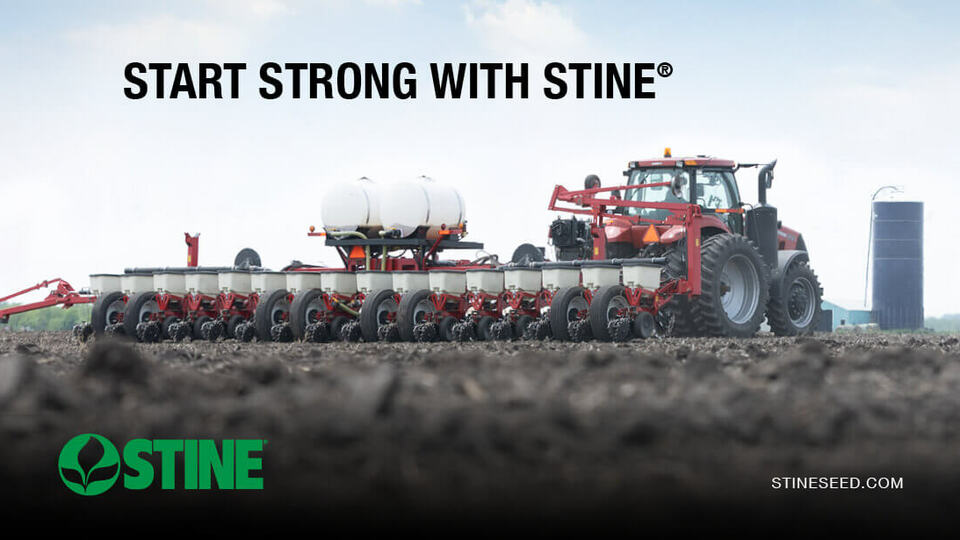Winter is a waiting game for growers. Will there be record-breaking snowfall and multiple days registering subzero temperatures? Will it be a milder winter where we’re unsure whether or not a winter freeze will come around? For many growers in the Midwest, we’re waiting on the latter. Surprisingly, not having consistent colder temperatures that bring a hard winter freeze can affect spring planting for a few reasons.
Soil Compaction
Most growers rely on a hard winter freeze to help draw excess moisture from the soil. No hard freeze combined with the wet weather we received last year and the moisture we’re receiving this winter will leave the fields wet and vulnerable to soil compaction. Even a light freeze at this point would affect only the top layer of soil for a day or so. Growers really want multiple days of deep freeze so that when the freeze and thaw cycle takes place, their soils begin to soften. This cycle lessens the probability of soil compaction when field traffic is at its peak during the spring planting season.
“Assuming a normal freeze to thaw cycle doesn’t take place, growers need to be cautious about getting in the field,” notes Stine Director of Agronomy Todd Schomburg. “There’s a tendency to want to get in the field earlier and earlier. If you get your heavy equipment in a field with saturated soils, you’re only going to exacerbate the problem.”
According to Iowa State University Extension and Outreach, “maximum soil compaction occurs when soil moisture is at or near field capacity because soil moisture works as a lubricant between soil particles under heavy pressure from field equipment.” If soil compaction occurs, growers are risking yield. Compaction leads to larger issues such as ponding, nutrient runoff and slow water infiltration, which leads to plants dying or stunted growth.
“We recommend that growers have a future-looking mindset when getting into the field,” notes Schomburg. “Check your soil fertility. Check your moisture level. But then look at the 30-day forecast. If it looks like it’s going to be a few weeks of wet weather, avoid getting in the field.”
If the clock starts ticking and wet fields persist, consult with your local Stine agronomist or university extension expert to determine if switching maturities or even crops is the right decision for a wet year.
The Killing Freeze
Another benefit to a solid winter freeze — kill off. Extreme cold and freezing conditions lead to low soil temperatures, which can kill off potentially damaging insects and plant pathogens as they overwinter in the soil. Ultimately, a deep freeze has been known to kill off populations of insects such as bean leaf beetles, which can cause significant plant damage or even bean pod mottle virus. That said, many insects and disease pathogens are able to survive cold winter temperatures and frost, so it’s always important to do your research and look at the history of your fields to determine if these issues have presented themselves in the past and, if they have, if it’s likely they might appear this year. Don’t rely solely on a good killing freeze to do the job for you.
For more information on how winter may affect your planting plans for 2020, contact your local Stine agronomist or local university extension expert.
Related Articles
-

Leveraging drone technology for improved research
February 2026 in Agronomy
-

MX Series Corn by Stine®: Proven performance for 2026
January 2026 in Agronomy
-

Start strong with Stine®: Maximizing your 2026 potential
January 2026 in Agronomy
-

Stine® to offer Syngenta’s Victrato® soybean seed treatment in 2026
December 2025 in Agronomy



